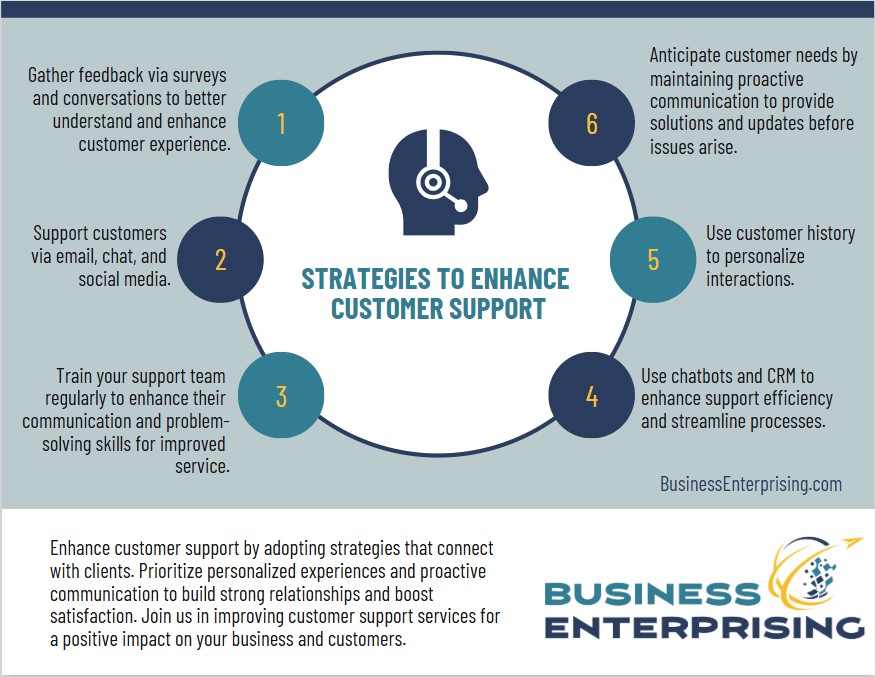
However, customer expectations are always evolving. To meet them, you need to adopt new strategies and tools that enhance your team’s efficiency. Proactive communication, multi-channel support, and personalized interactions all contribute to better outcomes. These efforts not only solve problems but also turn satisfied customers into loyal advocates.
By focusing on improving customer support, you can foster trust and create meaningful connections. Your commitment to providing exceptional service will set you apart in a competitive market. When you prioritize your customers’ needs, you build a strong foundation for sustained growth and success.
Understanding Your Customers’ Needs
Understanding your customers’ needs is essential for improving customer support. Gathering feedback allows you to identify their pain points and expectations. Surveys, online reviews, and direct interactions are valuable tools for collecting insights. Additionally, analyzing this data helps you uncover patterns and prioritize areas where your support can improve.
Empathy plays a key role in addressing customer concerns effectively. When you actively listen to your customers, you show them that their voices matter. Additionally, responding with understanding and genuine care helps build trust and fosters positive experiences. Empathy not only resolves immediate issues but also strengthens long-term relationships.
Improving customer support requires balancing data-driven decisions with emotional intelligence. By combining feedback analysis with an empathetic approach, you can address concerns more thoughtfully. This approach ensures your customers feel heard and valued, making them more likely to stay loyal to your business. When you focus on their needs, you create a foundation for consistent and meaningful support.
Leveraging Technology to Enhance Customer Support
Leveraging technology is a powerful way to improve customer support. Tools like chatbots, AI, and CRM systems enhance efficiency and responsiveness. Chatbots handle routine inquiries instantly, providing quick answers and freeing your team to focus on complex issues. Additionally, AI tools analyze customer interactions, helping you anticipate needs and offer tailored solutions.
Automation streamlines support processes while maintaining a personal touch. For example, automated workflows route customer requests to the right department, reducing delays. Additionally, CRM systems centralize customer information, giving your team the context needed for personalized interactions. These tools save time and improve the quality of support you provide.
However, balancing technology with human empathy is essential for improving customer support. While automation enhances speed and accuracy, your customers still value genuine and thoughtful responses. Combining technology with a personalized approach creates a seamless experience that builds trust and loyalty. By leveraging the right tools, you can deliver faster, smarter, and more meaningful support.
Training and Empowering Your Support Team
Training and empowering your support team is essential for improving customer support. Effective communication and problem-solving skills are at the heart of great service. Providing your team with role-playing exercises and real-world scenarios enhances their ability to handle customer concerns. Additionally, regular workshops help them adapt to different communication styles, making interactions more effective and empathetic.
Ongoing training keeps your team updated on the latest tools and techniques in customer support. As technology and customer expectations evolve, continuous learning ensures your team stays prepared. Additionally, offering opportunities for skill development boosts confidence and job satisfaction. When your team feels capable and valued, they are more likely to go the extra mile for customers.
Employee engagement also plays a critical role in delivering exceptional support. Encouraging open communication and recognizing your team’s efforts creates a positive work environment. This not only improves morale but also motivates your team to provide consistent, high-quality service. By investing in their growth, you build a team equipped to tackle challenges and exceed expectations.
Improving customer support starts with empowering your employees. When you focus on their training and engagement, they become better equipped to meet customer needs. This approach creates a win-win situation, strengthening your business and fostering loyalty among your customers.
Creating a Multi-Channel Support Strategy
Creating a multi-channel support strategy is essential for improving customer support. Offering support through email, chat, phone, and social media ensures customers can reach you on their preferred platform. Additionally, each channel serves unique needs, from quick responses in chat to detailed solutions via email. This flexibility enhances customer satisfaction and strengthens their trust in your brand.
Maintaining consistency across multiple channels requires clear processes and communication. Unified messaging helps ensure that customers receive the same quality of service, regardless of the platform they use. Additionally, integrating customer data across channels allows your team to access the information needed to provide personalized assistance. This approach minimizes frustration and builds a seamless experience.
A well-designed multi-channel strategy also improves response times and accessibility. For example, live chat can address immediate issues, while social media can handle public queries. However, regular training and technology updates are necessary to keep your team aligned and efficient. By focusing on consistency and accessibility, you can improve customer satisfaction and foster loyalty.
Improving customer support through a multi-channel approach meets diverse customer expectations. When you make support convenient and consistent, you create a positive impression that encourages repeat business. This strategy not only benefits your customers but also strengthens your reputation for excellent service.
Measuring and Improving Customer Support Performance
Measuring customer support performance is essential for improving customer support. Key metrics like response time, resolution time, and customer satisfaction scores help assess your team’s effectiveness. For example, quick response times show your commitment to resolving issues promptly. Additionally, high satisfaction scores reflect your ability to meet customer expectations.
Using data from these metrics allows you to identify areas for improvement. For instance, patterns in unresolved issues might highlight training needs or process inefficiencies. Additionally, tracking feedback from customer surveys provides insights into what’s working and what needs adjustment. This data-driven approach ensures your efforts are focused on impactful changes.
Regularly reviewing performance metrics helps you monitor progress and set achievable goals. Sharing these insights with your team encourages accountability and motivates improvement. Additionally, making adjustments based on clear data builds a stronger foundation for long-term success. By prioritizing performance measurement, you enhance the overall quality of your support.
Improving customer support requires continuous effort and attention to detail. When you use data to guide your decisions, you create a support system that evolves with your customers’ needs. This approach not only benefits your team but also strengthens your relationships with customers, fostering trust and loyalty.
Building Long-Term Relationships Through Excellent Support
Building long-term relationships with your customers starts with excellent support. Satisfied customers are more likely to become loyal advocates for your brand. By addressing their concerns promptly and effectively, you demonstrate that their needs matter. Additionally, positive experiences encourage them to recommend your services to others, strengthening your reputation.
Proactive support plays a key role in building trust and maintaining strong relationships. Anticipating customer needs or resolving issues before they escalate shows that you care about their success. For example, following up on a resolved issue ensures they are fully satisfied. This proactive approach enhances their confidence in your ability to provide consistent and reliable support.
Improving customer support goes beyond solving problems. It’s about creating memorable interactions that leave a lasting impression. When you focus on clear communication and empathy, customers feel valued and understood. These efforts not only increase loyalty but also foster a sense of partnership between you and your customers.
Long-term relationships are built on trust, engagement, and exceptional service. By prioritizing proactive and personalized support, you create a foundation for continued success. These relationships benefit your customers and help your business grow through loyalty and advocacy.
Conclusion
Improving customer support is an ongoing process that strengthens relationships and builds loyalty. By focusing on clear communication and proactive assistance, you create a positive experience for your customers. Additionally, leveraging technology and training your team equips them to handle challenges effectively and consistently.
However, great customer support is more than problem-solving; it’s about fostering trust and delivering value at every interaction. When customers feel heard and valued, they are more likely to become advocates for your brand. These connections not only enhance satisfaction but also drive long-term business growth.
In conclusion, investing in customer support benefits both your customers and your business. By continuously refining your strategies, you can create meaningful interactions that encourage loyalty and success. Excellent support turns every interaction into an opportunity to build stronger, lasting relationships.



